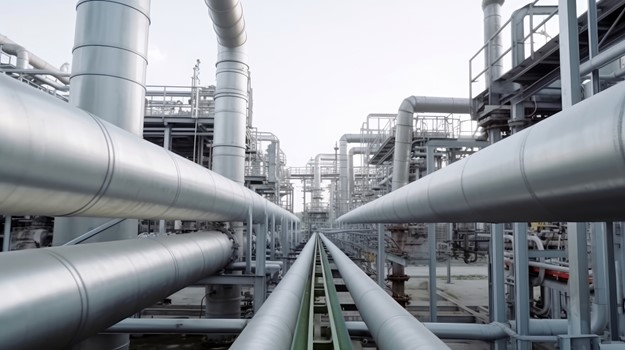
In the quest for sustainable and efficient energy solutions, gas-to-liquid (GTL) technology stands as a groundbreaking innovation. This technology converts natural gas into liquid fuels and offers a novel approach to harnessing the world's abundant natural gas reserves. Its significant potential in today's energy landscape cannot be overstated, as it addresses critical issues of environmental impact, energy security, and resource utilization. This article sheds light on the transformative role NiQuan Energy, LLC plays in the GTL domain, underscoring its commitment to developing small-scale GTL and X-to-liquids (XTL) plants. These installations are not only commercially viable, but they also align with the stringent global environmental standards, producing 100% biodegradable, near-zero sulfur fuels.
Understanding GTL: A Technical Overview
Gas-to-liquids (GTL) technology is a chemical process that transforms methane-rich natural gas into liquid hydrocarbons, such as diesel, gasoline, and jet fuel or blendstock. This process, championed by NiQuan Energy LLC, primarily involves two stages:
- Synthesis Gas Production: Natural gas, primarily methane, is converted into synthesis gas, a mixture of hydrogen and carbon monoxide. This is typically achieved through processes like steam methane reforming or partial oxidation.
- Fischer-Tropsch Synthesis: The synthesis gas is then passed over a catalyst to produce liquid hydrocarbons through a process known as Fischer-Tropsch synthesis. This method can produce a range of products, depending on the catalyst and conditions used.
The Advantages of GTL
- Utilization of Natural Gas Reserves: GTL provides a means to exploit natural gas reserves, particularly in remote areas. This maximizes the utility of resources that would otherwise be deemed uneconomical.
- Cleaner Fuel Production: GTL fuels are substantially cleaner than conventional fuels. They have lower sulfur content and produce fewer pollutants when combusted, improving air quality.
- Enhanced Energy Security: By diversifying the sources of liquid fuels, GTL reduces dependence on oil imports and mitigates the impact of oil market volatility.
- Economic Growth: The development of GTL plants can stimulate local economies, create jobs, and foster regional development.
GTL's Challenges
Despite its advantages, GTL technology faces several hurdles:
- High Capital and Operational Costs: The establishment of GTL plants requires significant investment, and the operational costs are considerable due to the complexity of the process.
- Environmental Concerns: The GTL process is energy-intensive and has a substantial carbon footprint. Addressing these environmental impacts is crucial for its long-term viability.
- Market Dynamics: The economic feasibility of GTL is sensitive to natural gas and oil price fluctuations, which can impact the return on investment.
GTL in the Global Energy Mix
NiQuan Energy, LLC's GTL technology is crucial in the transition to a more sustainable energy mix. It bridges the reliance on traditional fossil fuels and the shift towards renewable energy sources. GTL fuels, with their cleaner-burning properties, fit well into the narrative of reducing global carbon emissions. The company's small-scale GTL and XTL plants are a model for transitioning from traditional energy sources to renewable alternatives.
Innovations in GTL Technology
Innovation is key to overcoming the challenges faced by GTL technology. Recent advancements include:
- Improved Catalysts: Research is ongoing to develop more efficient catalysts that can enhance the yield and selectivity of the Fischer-Tropsch process.
- Process Optimization: Technological improvements in process design and operation can reduce energy consumption and operational costs.
- Carbon Capture and Utilization: Integrating carbon capture technologies can mitigate the environmental impact of GTL plants, making them more sustainable.
The Future Outlook for GTL
NiQuan Energy, LLC envisions a future where GTL technology is pivotal in sustainable energy. The company is committed to ongoing innovation to improve the scalability and environmental compatibility of its GTL and XTL projects. The future of GTL technology is promising but hinges on continuous innovation and favorable market conditions. As the world increasingly focuses on reducing carbon emissions, the role of cleaner fuels like those produced by GTL becomes more critical. The integration of renewable energy sources and advancements in carbon capture and storage (CCS) technologies could further enhance the appeal of GTL in the energy landscape.
NiQuan Energy LLC is at the vanguard of revolutionizing the energy sector through its GTL technology, representing a significant stride in the journey towards a more sustainable and efficient energy future. By converting natural gas into cleaner liquid fuels, GTL addresses key challenges of environmental impact, energy security, and resource optimization. While it currently faces hurdles in terms of cost and environmental concerns, ongoing advancements and innovations promise to bolster its role in the global energy matrix. As the world pivots towards cleaner energy solutions, GTL is a testament to human ingenuity and the relentless pursuit of sustainable energy alternatives.
